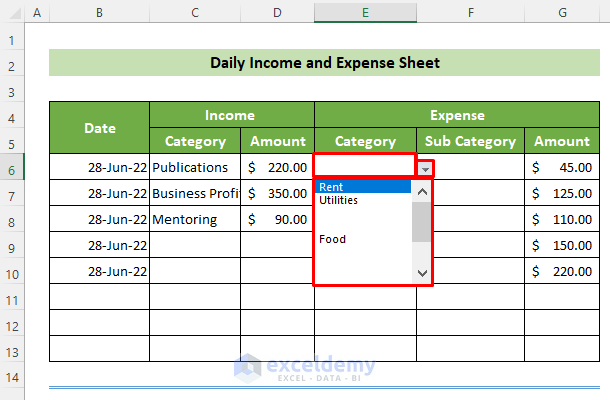5 Ways to Make Paperwork Sound Smart on Your Resume

When crafting your resume, effectively showcasing your experience with paperwork can significantly elevate your professional appeal. Paperwork, often seen as a mundane task, actually involves a suite of sophisticated skills that are invaluable in a corporate setting. Here are five strategic ways to make your paperwork skills stand out:
1. Use Action Verbs to Convey Expertise

The first step in making your paperwork skills sound impressive on your resume is to select powerful action verbs. Instead of saying “I filled out forms,” opt for:
- Managed administrative tasks, including document preparation, archiving, and retrieval.
- Streamlined internal processes by reorganizing filing systems.
- Ensured compliance with regulatory requirements through meticulous documentation.
These verbs convey proactivity, leadership, and precision, qualities highly valued by employers.
💡 Note: Keep a running list of all paperwork-related action verbs to avoid repetition and showcase your versatility.
2. Highlight Results and Impacts

Employers crave tangible results. They want to know what impact your paperwork management had. Here are ways to illustrate this:
- Reduced processing time by 30% through the implementation of a new document management system.
- Improved accuracy in financial reporting by instituting a double-check procedure.
- Increased office efficiency by automating data entry tasks, saving over 100 man-hours monthly.
Quantifying your accomplishments with percentages or specific numbers allows you to demonstrate your value in a concrete manner.
🧐 Note: Always back up claims with numbers. If you don't have exact figures, estimate conservatively or mention qualitative improvements.
3. Incorporate Relevant Keywords

Many companies use applicant tracking systems (ATS) to filter out resumes before human eyes get to see them. Here’s how to incorporate keywords:
- Data Entry: Mention specifics like forms, databases, or software you’ve used.
- Document Management: Include terms like archiving, retrieval, indexing, or compliance.
- Office Software: Name software like Microsoft Office, Google Suite, or specialized software like Adobe Acrobat.
This approach helps you pass through ATS filters and aligns your skills with industry needs.
🔍 Note: Use an online ATS-friendly resume checker to see if your resume contains enough relevant keywords.
4. Demonstrate Problem-Solving Skills

Paperwork isn’t just about following procedures; it’s about solving problems, too. Illustrate this with examples:
- Identified and resolved recurring documentation errors, preventing future mistakes.
- Devised and implemented a system to track document flow, reducing lost paperwork by 95%.
- Analyzed document workflows, identifying bottlenecks, and optimized for efficiency.
Problem-solving skills indicate your ability to think critically and adapt, traits that can transform you from a candidate into a key asset.
📝 Note: When describing problems, avoid generic phrases. Instead, use concrete examples of the challenges you faced and how you addressed them.
5. Showcase Leadership and Initiative

Even if paperwork is considered administrative, leadership and initiative can still be demonstrated:
- Led the transition from paper-based to digital documentation, training 20 employees.
- Took initiative to revamp the company’s filing system, resulting in a 20% faster document retrieval time.
- Organized a workshop on efficient document management, fostering a culture of organization and productivity.
This shows not only your capability to manage paperwork but also your potential to lead, motivate, and innovate within the workplace.
💼 Note: Leadership doesn't necessarily mean managing people; it can also be about taking charge of a process or initiative.
To wrap up, mastering the art of making paperwork sound impressive on your resume requires a shift in perspective. Paperwork isn’t just mundane data entry; it’s a testament to your organizational skills, attention to detail, compliance with regulations, and problem-solving abilities. By using strategic language, quantifying your accomplishments, and highlighting your leadership, you can turn even the most basic paperwork experience into a compelling narrative of your professional prowess. Whether you’re just starting your career or looking to advance, these tips will ensure your paperwork experience is not just seen but celebrated.
How can I ensure my resume gets past applicant tracking systems?

+
Using industry-specific keywords like “Data Entry,” “Compliance,” “Document Management,” and mentioning software tools like Microsoft Office or Google Suite can help your resume get noticed by ATS.
What if I have limited paperwork experience?

+
Highlight transferable skills like attention to detail, organization, or any initiative you took to improve processes, even in minor roles or internships.
Is there a risk of overhyping paperwork skills?

+
Balance is key. While it’s important to showcase your abilities, ensure your descriptions remain truthful and relatable to the job you’re applying for. Don’t exaggerate your experience; focus on demonstrating skills relevant to the position.
How can I make my resume stand out with paperwork experience?

+
Incorporate examples of how you improved workflows, mention specific software or systems you’ve mastered, and don’t forget to quantify your achievements where possible to demonstrate your impact.



